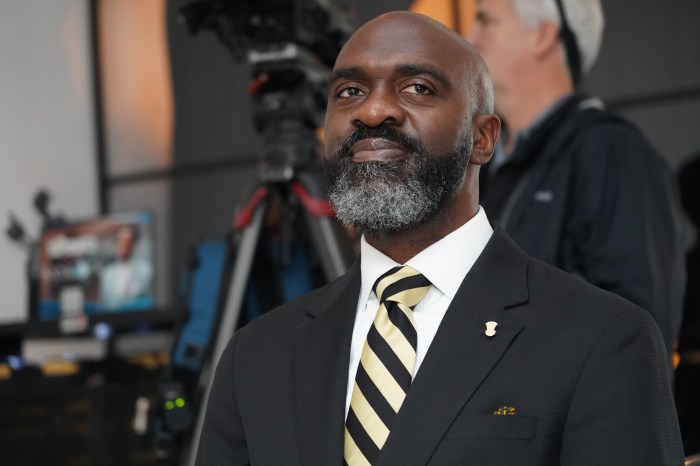Approaching a precinct or hospital has just become scarier for one New Yorker.
Labeled delusional, pumped with a cocktail of drugs and discharged without explanation — the array of events seems perfectly carved out of some horror movie.
Unfortunately, there were no actors adhering to a script or Ashton Kutcher to pop out of the bushes to yell “punked” at Kamilah Brock.
Brock endured eight days in Harlem Hospital’s psychiatric ward following what should’ve been a simple point in the right direction to reclaim her seized BMW.
“I knew I had to go to the 151st precinct but I wasn’t sure how to get there,” Brock explained. “I asked the locals for the closest precinct and they directed me to Service Area 6. I went in there and I told them my car was confiscated yesterday and I’m trying to find the precinct. I don’t have any money, can you guys just take me there and they completely denied me.”
Previously working as a banker at Citibank and Astoria Bank, the unfortunate series of events alienated Brock from corporate America. Now, the Jamaican American works for herself doing life insurance.
Prior to her visit to Harlem’s Public Service Area 6, Brock’s car had been confiscated by the authorities who suspected she was high on marijuana.
The bizarre experience continued with over an hour of back-and-forth as Brock attempted to be taken to where her car was. Instead of help, Brock says she was met with suspicion. “They asked me my name, my address, I gave them everything and then they asked me what kind of car I had and I told them it was a BMW and then after that it was ‘how old are you? Are you sure it’s your car? Are you sure it’s not your parent’s car?’ They started badgering me and I was like ‘look, I just need to get the 151st precinct can you take me there’ and they wouldn’t take me there,” she explained.
Unwilling to leave PSA6 without knowledge of where her car was located, Brock was placed in handcuffs and led into an ambulance. The officers assured her that she would be taken to where her car was located.
“EMS approached me and I said ‘I’m going to my car in an ambulance?’ and they said yeah, ‘we’re going to take you to your car in an ambulance.’ So I said whatever so long as I get to my car I didn’t care how I got there,” she said.
Brock was then transported to Harlem Hospital’s psychiatric ward where she grew more and more skeptical of the situation. She approached the officers and doctors to attempt in gaining some understanding of why she was at the hospital and not with her car.
At this point, the situation took an insane turn as Brock claims she was then restrained and sedated — the start of her forceful stay. “I spent eight days at Harlem Hospital in the psychiatric ward,” she recalled.
While in the psychiatric ward, Brock remained on a cocktail of drugs with the belief that if she complied she would be released sooner rather than later. She also attended group therapy sessions.
Brock believes that what helped her leave the hospital was her conversations with the nurses about the entertainment side of her life.
“I think the reason why they let me go is because I started showing the nurses that was monitoring the floor and the people my entertainment side to my life because I do music. I started showing my videos and my pictures with celebrities I know and things like that and they were like ‘wait a minute.’ I think that’s when they finally realized they made a mistake but they never owned up to it at the end when they discharged me. They never said I’m sorry or anything,” Brock said.
A year later, Brock has discovered that despite telling the truth to both the authorities and hospital staff she was diagnosed as having “grandiose ideations” of herself.
“I didn’t know the reason why I was there for so long was because they thought I was having grandiose ideations of being a banker and I had grandiose ideations of owning a BMW,” she said.
Now, the 32-year-old is waging a lawsuit against the City of New York. Her attorney, Michael Lamonsoff, believes there was a definite racial component that played a part in the way Brock was treated. “There’s a racial component to this too. I think if she was a white woman and she said I am a banker and I own a BMW, I tweet with the president because I’m political, do you think she would be hospitalized for it,” Lamonsoff said.



























